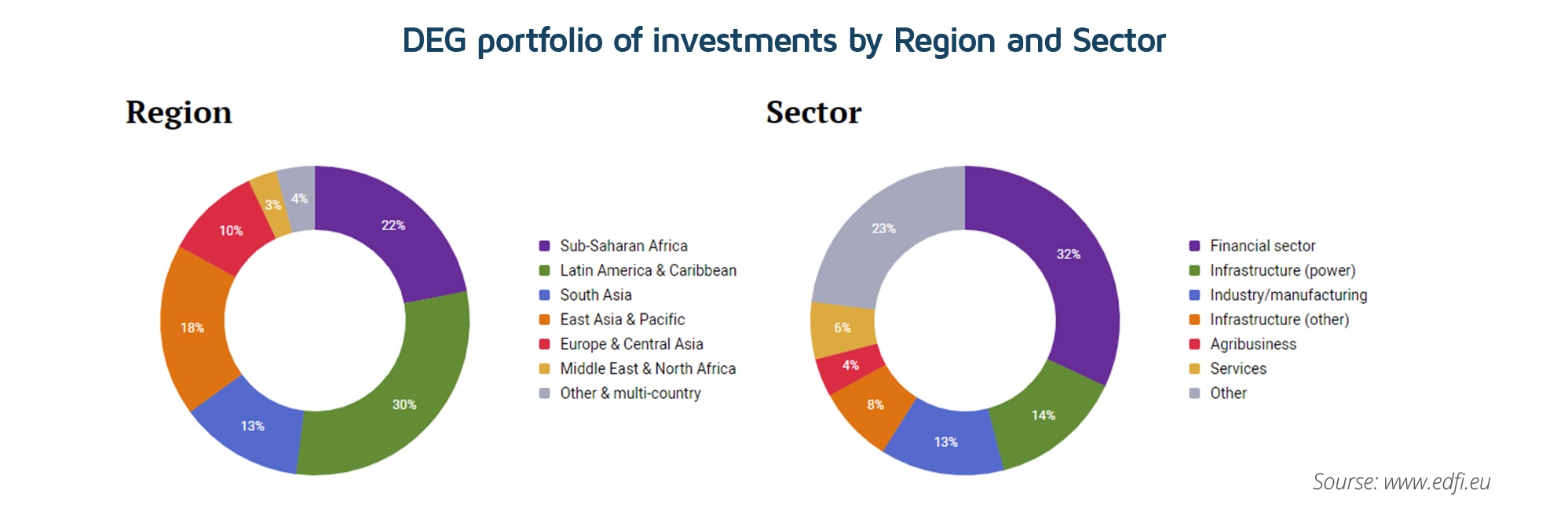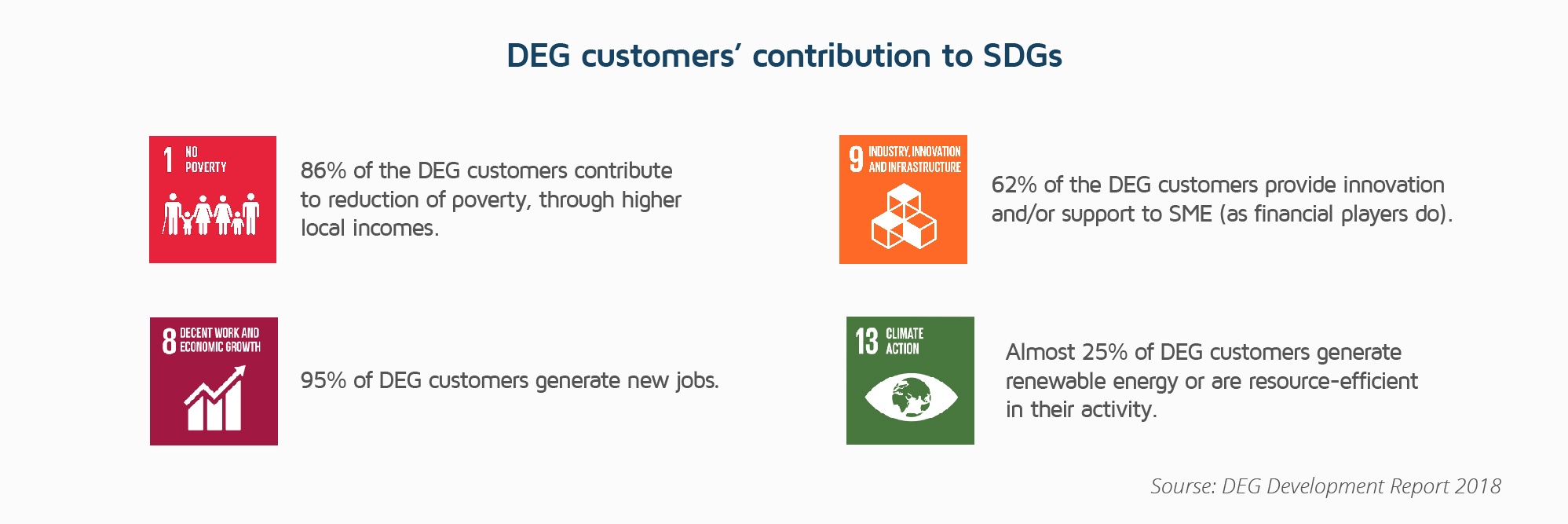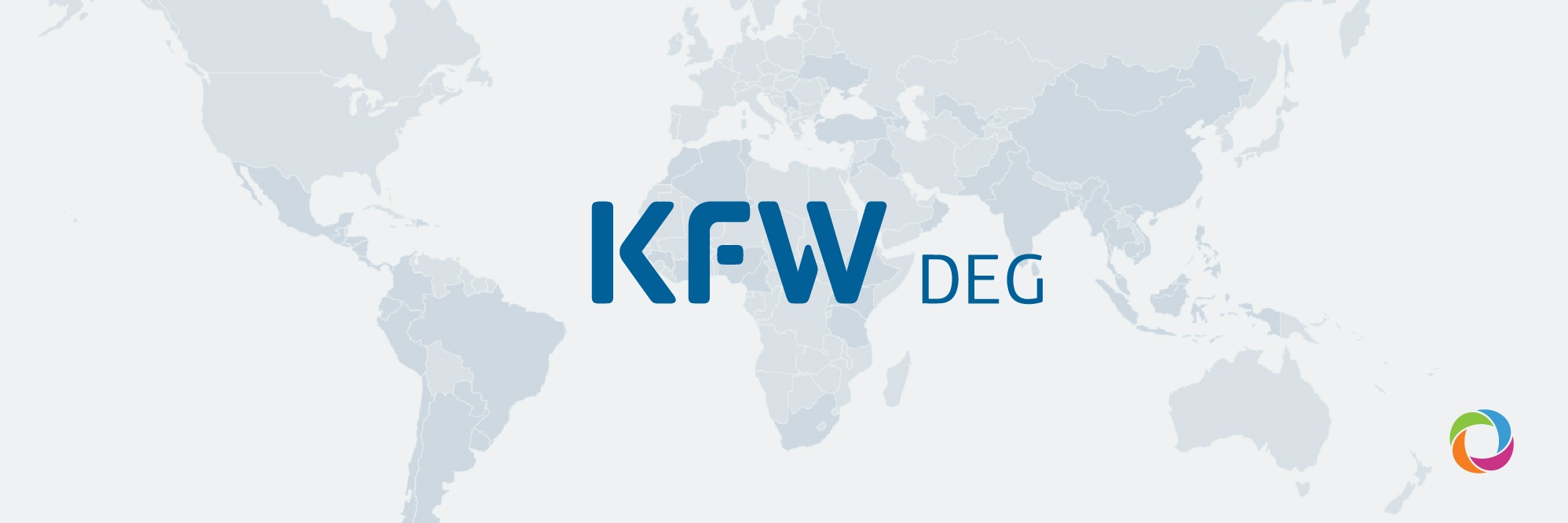As one of the strongest economies in the world, Germany has deep-rooted business and entrepreneurial traditions. In 1962, with help and funds from the Federal Ministry for Economic Cooperation in Germany, the ‘German Association for Economic Cooperation’ was established. Its main aim was to help poor countries to develop by encouraging entrepreneurship. Since 2001 the organization has been entirely owned by KfW and today is known as KfW DEG and operates not only with German state-funds but also with its own capital. How much has it invested in developing countries since its foundation and what development goals has it attained? Answers to these and other questions can be found in DevelopmentAid’s article from the DFI files series.
Tanzania was the country where DEG financed its first project. The funding institution then focused on small and medium companies within the processing industry. During the first ten years of its operation, the initial idea behind the company’s investments was to assist German entities to extend their business overseas by creating joint ventures in the destination countries. The rationale was that boosting the economic activity would create jobs, raise wages, reduce poverty and bring additional taxes to the country’s budget. However, difficulty in finding reliable partners in the destination country, together with the financial restrictions imposed by the federal body of the homeland, restricted the company’s development.
In the early 1980’s, DEG started taking own risks and raising its own funds by accessing the capital markets. This breakthrough step allowed it to gain more freedom to act and it could back projects that were owned entirely by entrepreneurs from the home country. Since then, DEG has expanded its geographical area of operations and there are over 140 developing countries that are eligible for projects supported by DEG.
DEG in figures: financial flows and their distribution by industries
According to the company’s reports, it currently has over 600 projects in 82 countries. The total portfolio of the projects, since the entity’s establishment in 1962, has grown to almost EUR 8.4 bn, as of December 2018. At the same time, during 2018, the company committed EUR 1.8 bn to 156 projects and measures of which 67 involved German corporates. Almost EUR 970 million was committed to financing small and medium-sized enterprises (SMEs) and medium-sized businesses.
By continent, the biggest share of financing in 2018 went to Latin America, where commitments reached EUR 579.3 million. In Africa, DEG’s operations reached EUR 437.9 million in new commitments for 2018. New commitments for Europe increased significantly over the previous year at EUR 245.1 million. Financing commitments in 2018 were spread across 45 countries.
The financial industry (sector) is the most prevalent in the DEG’s portfolio of investments with over 55% of funds over time having been invested in this sector. Almost 15% has been invested in the Energy & Water sector. Manufacturing (industry), which was amongst the TOP at the beginning of DEG’s history, is currently the third-rated sector, with almost 14% of the portfolio attributed to businesses operating in this sector. Transport, telecoms, agribusiness, fisheries and other services account for the remainder portfolio.

Measuring Development Goals through business activity results
“More than just finance” states the DEG corporate identity. It is no secret that Development Finance Institutions across the world look for a development component in each business they help set-up or finance. In fact, DEG states that it provides not only financial support to its customers, but also offers expert advice from the 600+ employees it has in over 19 countries.
In order to measure how the private sector that it supports contributes to development, DEG uses own Development Effectiveness Rating. This rating combines quantitative data and qualitative indicators to measure the development of each customer on an annual basis. The gathered information is then summarized into 5 central areas: decent jobs, market and sector development, environmental stewardship and community benefits.
The business sector is expected to bring considerable results to the implementation of the UN’s 2030-Agenda and the Sustainable Development Goals (SDGs). As with each DFI, DEG can define the progress of several SDGs having been accelerated by the positive impact of its customers’ business activity.

According to DEG’s Annual Development Report, the activity of the company’s customers has resulted in:
- 1.7 mln people employed
- EUR 80 bn in local income (i.e. salaries, procurement, taxes, in 2018)
- 41 TWh of green electricity (that saves almost 20 m t of CO₂ annually) generated for 37 mln people
As the role of the DFIs across the world is becoming more important due to the growing need for the sustainability of development assistance, DevelopmentAid will continue its series of DFI files. The next article will be available soon and take a look at COFIDES – the Spanish DFI. Stay up to date with the most important news from the International Development Sector with developmentaid.org.

